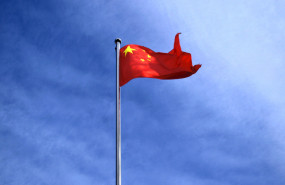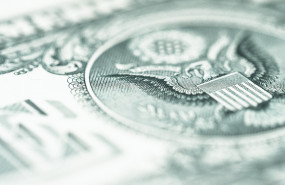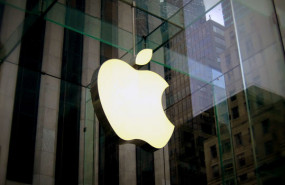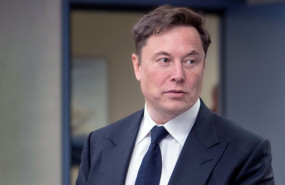Press Round-Up Short (Premium)

Friday newspaper round-up: Thames Water, Wireless Logic, United Health
Ministers plan to use new powers to block bosses from Thames Water taking bonuses worth hundreds of thousands of pounds as the company fights for survival, the Guardian can reveal. Britain’s biggest water company admitted this week that senior managers are in line for “substantial” bonuses linked to an emergency £3bn loan. – Guardian.

Thursday newspaper round-up: Bank of London, Telefonica, Boeing
The post-pandemic shift to greater home working among highly skilled professionals has failed to level up Britain’s economy and help struggling regions as many had predicted it would, according to academic research. Hybrid working – where workers split their time between the workplace and another remote location such as home – has surged since the height of the Covid pandemic, yet is mostly available to older, high-skilled professionals based in London and other major cities.

Wednesday newspaper round-up: Channel 4, Jaguar Land Rover, Thames Water
European companies are increasingly lobbying for strong climate action, research has found, in a “profound shift” that analysts say challenges the narrative that businesses see green rules as a threat to profits. The share of companies whose corporate lobbying is “aligned” with pathways to meet global climate goals rose from 3% in 2019 to 23% in 2025, according to an analysis of 200 of the largest European companies by InfluenceMap, while the share of companies who were deemed “misaligned” fell from 34% to 14%.

Tuesday newspaper round-up: Pension funds, Lloyds Bank, Thames Water
Keir Starmer’s blueprint for curbing immigration could exacerbate skills shortages in sectors that would “fall over” without immigrant labour, the prime minister has been told. Starmer said that businesses in particular had become “almost addicted to importing cheap labour” rather than investing in UK talent. Trade bodies and businesses retorted on Monday by saying that new restrictions could only work if accompanied by urgent measures to help businesses recruit and train UK residents.

Monday newspaper round-up: Staff layoffs, food retailers, Dutch style pensions
UK employers laid off staff in April at a faster pace than the previous month as the combination of higher employment costs and shock waves from Donald Trump’s tariff war sent boardroom confidence levels plummeting. The human resources association, CIPD, said employer confidence levels slumped to an all-time low, prompting job cuts and a widespread hiring freeze. – Guardian.

Sunday newspaper round-up: US-China, Aerospace, Pharma
The US president said talks with China that were taking place in Geneva had achieved a "total reset" in the two countries' trade relations. Without elaborating, Donald Trump said that great progress had been made and that they wanted to see an opening up of China to American businesses. The negotiations were scheduled to continue on Sunday. - Guardian .

Friday newspaper round-up: Centrica, water bills, BlackRock
The owner of British Gas has suffered a shareholder rebellion after handing its chief executive a multimillion pound pay packet while energy bill payers struggle with record levels of debt. Nearly 40% of Centrica’s shareholders voted against the board’s pay plans at the energy company’s annual investor meeting in Manchester on Thursday, after rising criticism of boss Chris O’Shea’s pay during the energy crisis. – Guardian.

Thursday newspaper round-up: Orsted, drought conditions, HSBC, uninsurable homes
The world’s biggest wind power developer has cancelled plans for one of the UK’s largest offshore windfarms, in a significant blow to the government’s green energy targets. The Danish wind power company Ørsted said the Hornsea 4 project no longer made economic sense because of soaring costs in the industry’s global supply chain, after it won a government contract last year. – Guardian.

Wednesday newspaper round-up: Tesla sales, Trump trade war, mortgages, Kingsmill-Hovis merger
Elon Musk’s Tesla sold just over 500 vehicles in Britain in April, down by more than half on the previous month, as motorists shifted decisively away from all-electric vehicles in favour of plug-in hybrids. According to the latest registration figures, the big government push to get drivers into all-electric cars appears to have stalled seemingly in favour of the plug-in hybrids, internal combustion engine vehicles which can run for a few dozen miles on a rechargeable electric battery.

Tuesday newspaper round-up: US Treasury Secretary, Profit warnings, Russia
The US treasury secretary attempted to soothe Wall Street on Monday as President Trump rattled markets with a plan to impose 100 per cent tariffs on foreign-made films and a prominent investor said the US brand had been damaged. "It has never been a better time to invest in America," Scott Bessent told finance leaders gathered at the annual Milken Institute global conference in Beverly Hills, Los Angeles. - The Times.
Sunday newspaper round-up: BP, BAE Systems, Brexit
Shell is studying a possible bid for rival BP to take advantage of its botched net zero strategy. According to Bloomberg, the oil major is looking at just how feasible and beneficial an acquisition might be. BP has however recently dropped its previous strategy, under pressure from activist investor Elliott Management. Shell has a market value that nearly triples that of BP. - The Sunday Telegraph.

Friday newspaper round-up: Harrods, USD1, European ETFs
Staff at the Co-op have been ordered to keep their cameras on during remote meetings to verify attendees while Marks & Spencer has halted all recruitment as the companies tackle cyber attacks. Both retailers have had to shut down parts of their IT systems after hackers infiltrated their networks with alleged ransomware attacks. Harrods, the luxury London department store, became the third household name to confirm it had fallen victim to cyber criminals on Thursday.

Thursday newspaper round-up: Ukraine-US deal, Microsoft, Tesla...
Ukraine and the US have announced they have reached a vital minerals deal following months of sometimes fraught negotiations. In Washington on Wednesday, the two countries said they signed an agreement on a joint fund to invest in Ukraine's reconstruction, with a draft saying Washington would get preferential access to new Ukrainian natural resources deals. – The Independent.

Wednesday newspaper round-up: Net zero, trans bathrooms, Trump trade deal, Amazon, Spain blackouts
The push for net zero has become “irrational” because people in developed countries are being asked to make “financial sacrifices and changes in lifestyle” that will make little difference, Sir Tony Blair has warned as he called for a “reset” of climate policies. The former prime minister said that a backlash against climate change policies threatened to “derail the whole agenda”, in the latest sign that the mainstream consensus on green policies is collapsing.

Tuesday newspaper round-up: Gas power stations, blackouts, IBM
Britain’s gas power stations should be nationalised to prevent their owners from holding the electricity market “to ransom”, a thinktank has urged. The country’s dwindling fossil fuel power plants are ripe for nationalisation as ministers aim to reduce gas consumption to just 5% of the electricity system by 2030, according to a report by Common Wealth. – Guardian.

Monday newspaper round-up: UK banks, RedBird Capital, Will Shu
UK banks’ earnings reports will be studied this week for signs of turmoil linked to Donald Trump’s tariff drama, with uncertainty over global growth likely to weigh on lenders with heavy exposure to China, including HSBC. First-quarter profits only reflect the January-to-March period that preceded the US president’s “liberation day” tariff announcements on 2 April. But investors will be concerned about any hints of caution around earnings forecasts, as well as an uptick in money put aside for defaults by tariff-hit borrowers.
Sunday newspaper round-up: India-Pakistan, Drax Group, Shein
Indian Navy ships test-fired missiles on Sunday to demonstrate the country's ability to launch "long-range, precision offensive" strikes. The move follows rising tensions with Pakistan after an attack on civilians at a tourist site in Kashmir. Also at the weekend, Pakistan's railway minister warned that Islamabad's arsenal of over 130 missiles was "not kept as models". - Guardian .

Friday newspaper round-up: Apple, South Korea, Drax...
Apple plans to shift the assembly of all US-sold iPhones to India as soon as next year, according to people familiar with the matter, as President Donald Trump’s trade war forces the tech giant to pivot away from China. The push builds on Apple’s strategy to diversify its supply chain but goes further and faster than investors appreciate, with a goal to source from India the entirety of the more than 60mn iPhones sold annually in the US by the end of 2026. – Financial Times .

Thursday newspaper round-up: UK Temu duty, chlorinated chicken, energy bills, AstraZeneca, EU mobility
British brands have warned they are being “doubly penalised” after DHL suspended deliveries to the US because of President Trump’s tariff war, which is loading extra costs and paperwork on to exporters. The logistics group temporarily halted shipments worth more than $800 to the United States for business-to-consumer deliveries on Monday as it scrambles to deal with added shipping complexities caused by White House policy changes on imports. - The Times.

Wednesday newspaper round-up: Tesla, IMF, China tariffs...
The Tesla chief executive, Elon Musk, said he will start pulling back from his role at the so-called “department of government efficiency” starting in May. Musk’s remarks came as the company reported a massive dip in both profits and revenues in the first quarter of 2025 amid backlash against his role in the White House. On an investor call, Musk said the work necessary to get the government’s “financial house in order is mostly done”. – The Guardian.